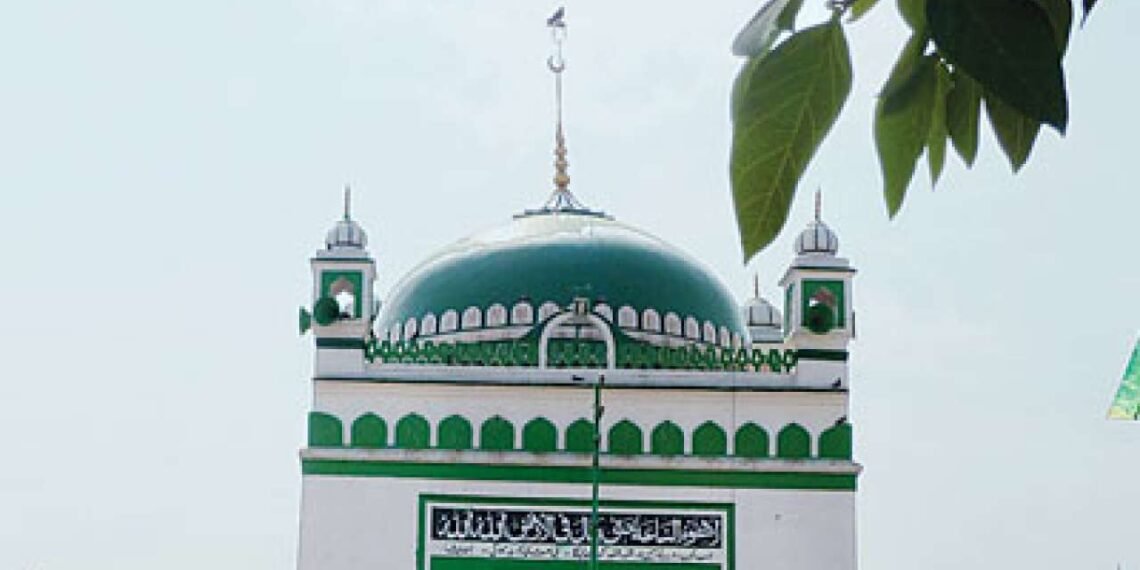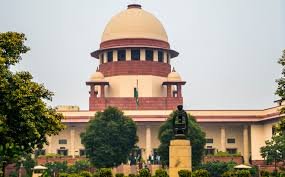The Supreme Court has intervened in the sensitive Sambhal Jama Masjid case, emphasizing the importance of communal harmony. While staying trial court proceedings until January 8, 2025, the Court directed that the survey report remain sealed. The mosque committee has been advised to approach the High Court to challenge the survey order, raising crucial questions about the Places of Worship Act and procedural fairness.
By PC Bureau
New Delhi
The Supreme Court on Friday, November 29, directed the Sambhal Trial Court to halt proceedings in a case involving the Sambhal Jama Masjid until the High Court hears the mosque committee’s challenge against the survey order.
A bench comprising Chief Justice of India Sanjiv Khanna and Justice Sanjay Kumar also ordered that the report prepared by the advocate commissioner, who conducted the mosque survey, remain sealed and unopened until further notice.
The case pertains to a November 19 order by the Sambhal trial court directing a survey of the mosque following a suit that alleged it was constructed after demolishing a temple in 1526 during Emperor Babar’s reign. The survey sparked violence in the district, leading to four deaths.
During the hearing, CJI Khanna stressed the importance of maintaining peace and harmony in the region. Addressing Additional Solicitor General KM Nataraj, representing the Uttar Pradesh administration, the CJI remarked:
“Peace and harmony have to be maintained. We don’t want anything to happen… we must be absolutely neutral and ensure nothing wrong is done.”
The Supreme Court advised the mosque committee, represented by Senior Advocate Huzefa Ahmadi, to approach the High Court to challenge the trial court’s order rather than seeking direct intervention from the apex court. The CJI observed:
“We have some reservations about the order, but you still have to approach the appropriate forum.”
Advocate Vishnu Shankar Jain, representing the respondents, informed the Court that the trial court proceedings are scheduled to resume on January 8, 2025. In response, the Supreme Court clarified that no further steps should be taken by the trial court until then.
The mosque committee argued in its petition that the trial court’s ex-parte order for the survey, issued without hearing the mosque’s representatives, violated due process. It contended that the survey’s swift execution created unrest among local residents. The petition also cited the Places of Worship Act, 1991, asserting that the suit is barred under its provisions. Additionally, the mosque is claimed to be a protected ancient monument under the Archaeological Survey of India (ASI).
While the Supreme Court refrained from commenting on the merits of the case, it reiterated the importance of following due process under the Constitution and Civil Procedure Code (CPC). The next hearing is set to determine the petition’s progression in the High Court.
ey Observations by the Supreme Court
- Maintenance of Peace and Harmony
- Chief Justice of India emphasized the need to preserve communal peace in the Sambhal district amidst the sensitive nature of the dispute.
- “Peace and harmony have to be maintained. We don’t want anything to happen… we must be absolutely neutral and ensure nothing wrong is done.”
- Direction to Approach High Court
- The Court advised the mosque committee to challenge the trial court’s survey order in the High Court rather than seeking direct intervention from the Supreme Court.
- “We have some reservations about the order, but you still have to approach the appropriate forum.”
- Stay on Trial Court Proceedings
- Proceedings in the trial court are paused until January 8, 2025. No further action is to be taken by the trial court during this period.
- Sealed Report of the Survey
- The Supreme Court directed that the advocate commissioner’s report, resulting from the mosque survey, remain sealed and unopened until further orders.
- Significance of Procedural Compliance
- The Court reminded all parties of the importance of adhering to the Civil Procedure Code and Constitutional provisions when contesting trial court orders.
- Concerns Over Ex-Parte Order and Places of Worship Act
- The mosque committee argued that the ex-parte survey order violated due process and contravened the Places of Worship Act, 1991, which bars legal challenges to the religious character of a place as of August 15, 1947.
- Potential for Communal Unrest
- The swift survey execution led to unrest in the area, with violence reported and fatalities underscoring the need for a cautious and measured approach.














